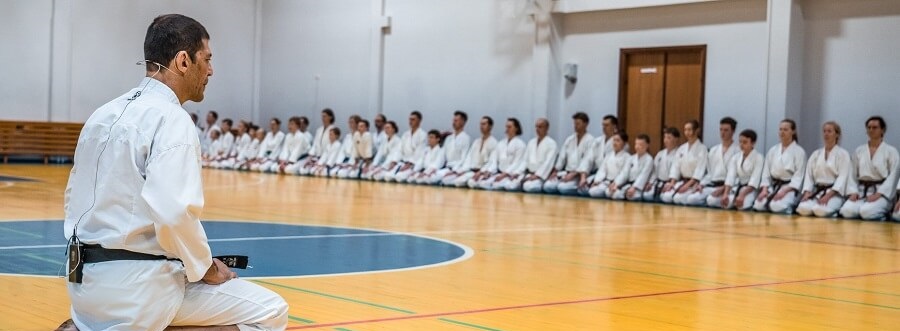What is Karate
An empty handed martial art, based on skill rather than brute strength, and as such size and strength are irrelevant.
Karate aims to integrate the whole body to achieve powerful techniques with the least amount of effort possible. Moreover, it teaches practitioners to interact with the opponent using optimal distance and timing. This allows one to use the opponent’s action rather than conflict with his/her power.
The ultimate goal of karate is the infinite expansion of human potential through self defense art. In striving for this goal, practitioners will master self-defense as a means to polish mind and body.
“The ultimate goal of karate lies not in victory or defeat, but in the perfection of participants’ characters” –
Gichin Funakoshi, father of modern karate.
Principles of karate can be applied to life as a whole. When one can handle themselves optimally under threatening conditions, regular life activities can be handled optimally. Our Karate classes build strength, focus, and confidence.
“One must overcome the self before defeating an opponent.”
– Budo saying.

Karate origins can be traced over thousand years back to China. Its main development took place in the island of Okinawa, where the natives were banned from carrying weapons. It was therefore practiced in secrecy.
Parents also choose kids self defense classes because they empower children with practical techniques to stay safe in real-life situations.
In the early 20th century, master Funakoshi introduced karate to Japan, where it was influenced by the rich Japanese martial arts tradition (Budo).
Master Nishiyama, student of master Funakoshi, founded the famous Japan Karate Association and led its first instructors course. These instructors went on to spread it throughout the world in the 60’s.
Master Funakoshi’s students called his system – Shotokan, and it soon became the most widely practiced system in the world.
Avi Rokah, studied under master Nishiyama every day for 27 years until his passing in 2008.
Considered one of the world’s best instructors today, he regularly coaches top instructors and athletes in many countries: Germany, Austria, Russia, Ukraine, Lithuania, Czech Republic, Poland, Israel, Canada and others.
